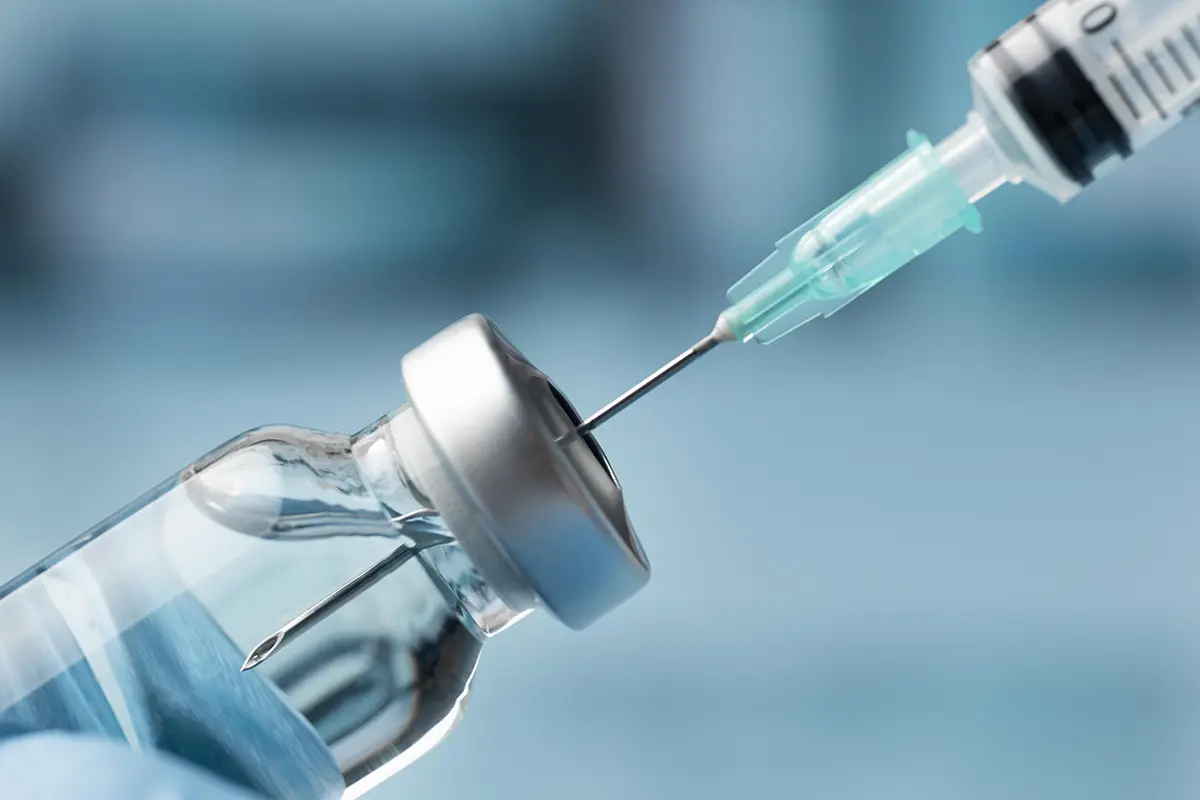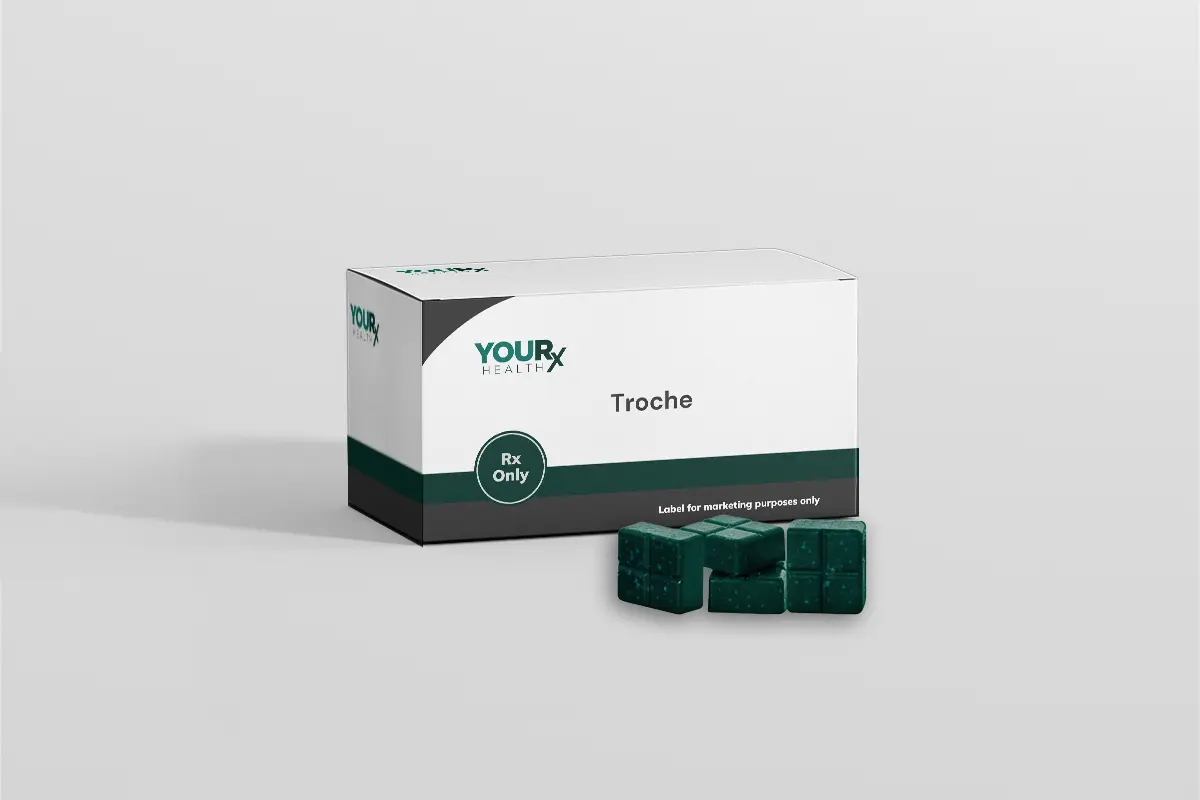
Written by
Clay Hall
PhD, MBA, NP-C
When it comes to optimizing male fertility, testosterone levels, and overall hormonal health, two treatments often come up: Enclomiphene and Human Chorionic Gonadotropin (HCG). While both have their roles in managing male hypogonadism and fertility issues, they work through different mechanisms and have distinct effects on the body. In this blog, we’ll explore the differences between Enclomiphene and HCG, their benefits, side effects, and which might be the better choice depending on individual needs.
What is Enclomiphene?
Enclomiphene is a selective estrogen receptor modulator (SERM) that is commonly used to treat male hypogonadism, a condition characterized by low testosterone levels. It is one of the isomers of clomiphene citrate, which has been widely used in fertility treatments. Unlike clomiphene, which contains both enclomiphene and zuclomiphene, enclomiphene by itself is more targeted in its action, leading to fewer side effects.
How Does Enclomiphene Work?
Enclomiphene works by blocking estrogen receptors in the brain, particularly in the hypothalamus. This blockade tricks the brain into thinking there is less estrogen in the body, prompting the release of more Gonadotropin-releasing Hormone (GnRH). This, in turn, stimulates the pituitary gland to secrete more Luteinizing Hormone (LH) and Follicle-Stimulating Hormone (FSH), which are crucial for testosterone production and sperm development.
What is HCG?
Human Chorionic Gonadotropin (HCG) is a hormone produced during pregnancy, but it also plays a significant role in male reproductive health. In men, HCG mimics LH, stimulating the Leydig cells in the testes to produce testosterone. HCG is often used in men who are on testosterone replacement therapy (TRT) to maintain fertility and prevent testicular shrinkage.
How Does HCG Work?
HCG directly stimulates the testes to produce testosterone by binding to LH receptors. This direct action makes it highly effective in raising testosterone levels, even in cases where the natural production of LH is suppressed, such as during TRT.
Benefits of Enclomiphene
- Increased Natural Testosterone Production: Enclomiphene stimulates the body’s own production of testosterone without the need for exogenous hormones.
- Maintenance of Fertility: By stimulating the production of both LH and FSH, enclomiphene can help maintain or even improve sperm production, making it a good choice for men looking to preserve fertility.
- Oral Administration: Enclomiphene is taken orally, making it more convenient than injectable treatments like HCG.
Benefits of HCG
- Direct Testosterone Production: HCG can rapidly increase testosterone levels by directly stimulating the testes, making it highly effective.
- Testicular Health: HCG helps prevent testicular atrophy, a common side effect of TRT, by maintaining intratesticular testosterone levels.
- Combination with TRT: HCG is often used in conjunction with TRT to maintain fertility and prevent testicular shrinkage.
Side Effects of Enclomiphene
- Mood Swings: As with any SERM, there is a potential for mood swings or emotional changes due to hormonal fluctuations.
- Headaches: Some users report headaches, which are generally mild.
- Vision Changes: Rarely, enclomiphene can cause visual disturbances.
Side Effects of HCG
- Injection Site Reactions: Since HCG is typically administered via injection, there can be irritation or discomfort at the injection site.
- Gynecomastia: HCG can increase estrogen levels in men, potentially leading to gynecomastia (breast tissue development).
- Water Retention: HCG may cause water retention, which could be problematic for those with cardiovascular issues.
Which is Right for You?
The choice between enclomiphene and HCG largely depends on your individual goals and medical history.
- For those looking to boost natural testosterone levels while maintaining fertility, enclomiphene might be the better choice. It’s particularly beneficial for men who are not on TRT and want to avoid injections.
- For those on TRT who need to maintain testicular function and fertility, HCG is often recommended. It’s also a better option if there’s a need for a rapid increase in testosterone levels.
Conclusion
Both enclomiphene and HCG are valuable tools in managing male hormonal health, but they serve different purposes. Consulting with a healthcare provider is essential to determine which treatment aligns best with your health needs and lifestyle. Whether you’re looking to optimize fertility, increase testosterone, or both, understanding the differences between these treatments can help you make an informed decision.




